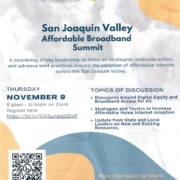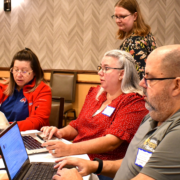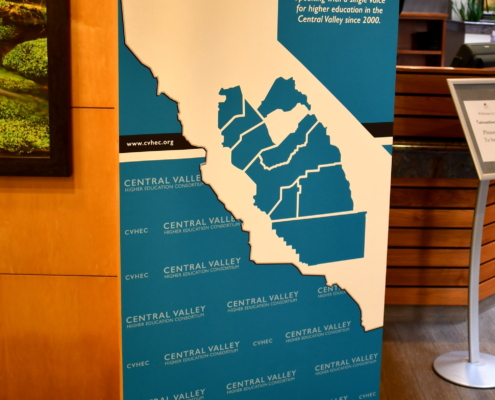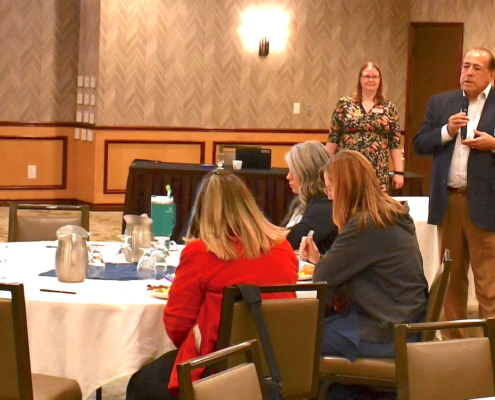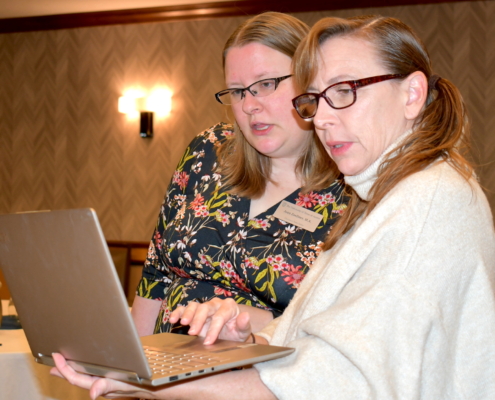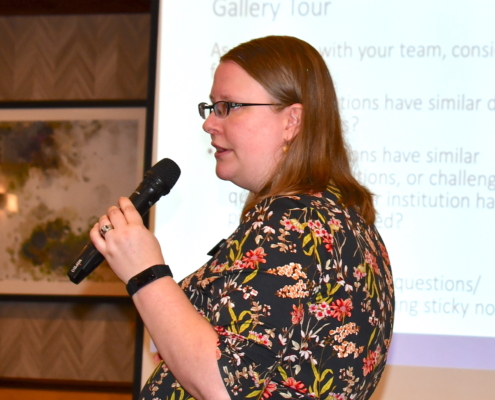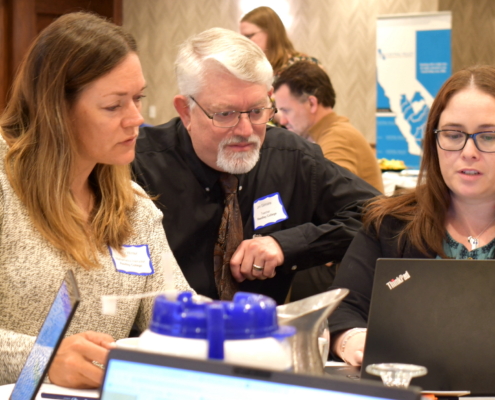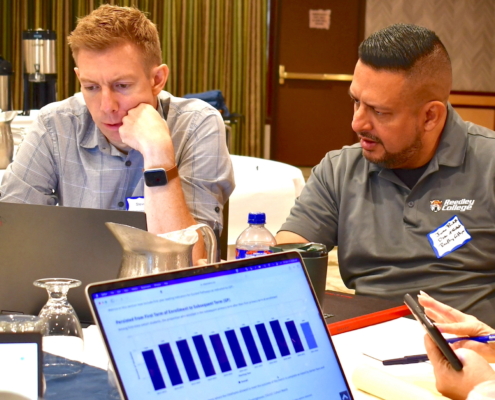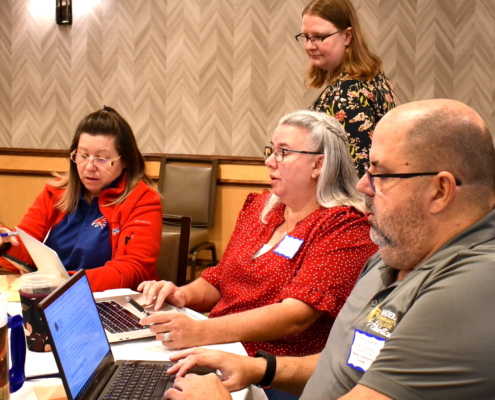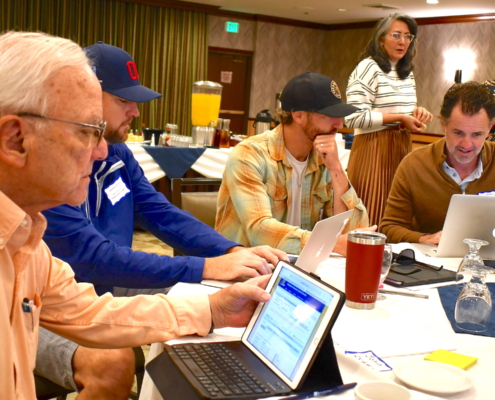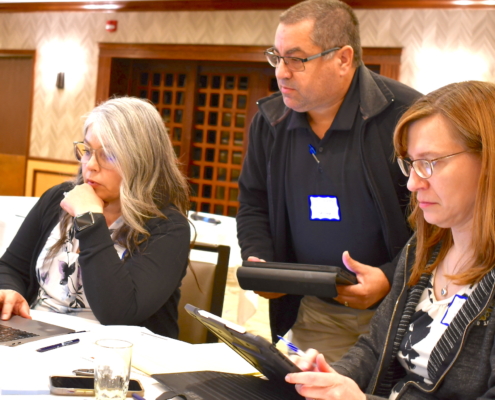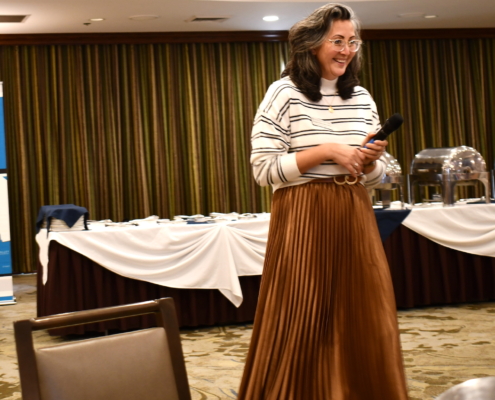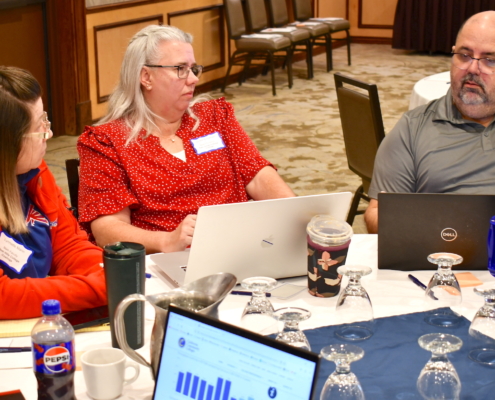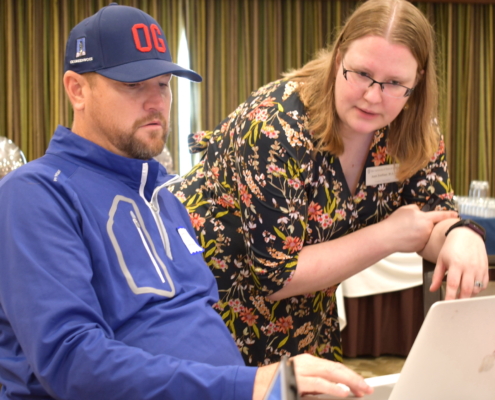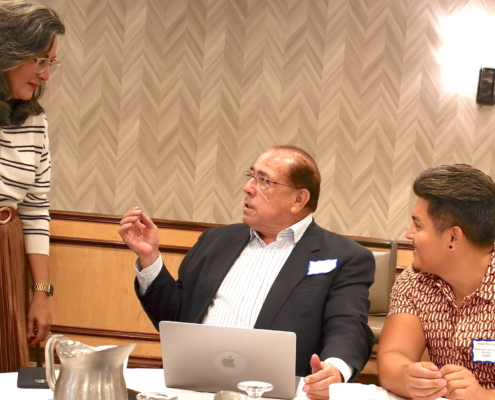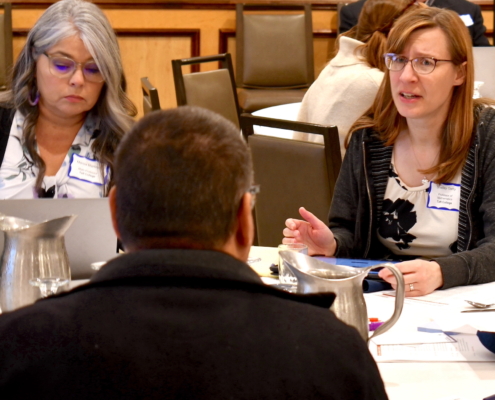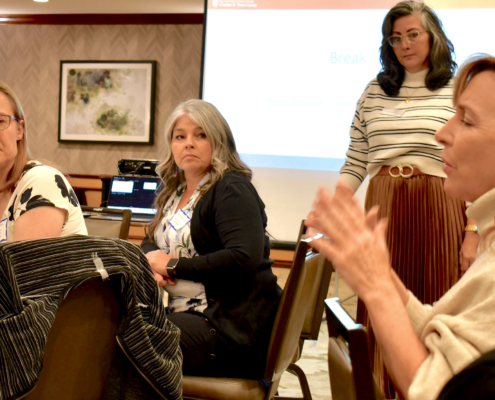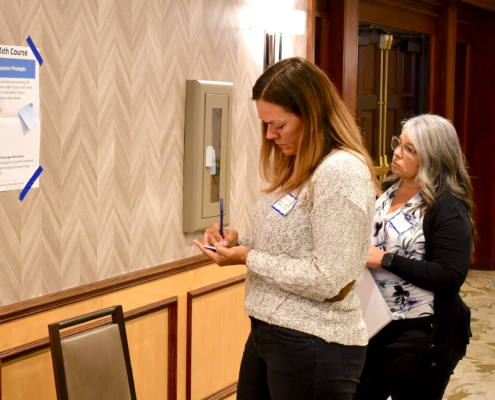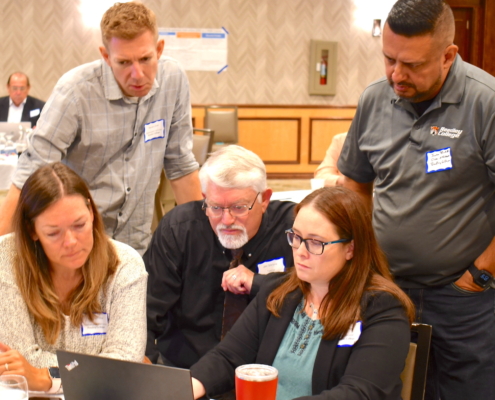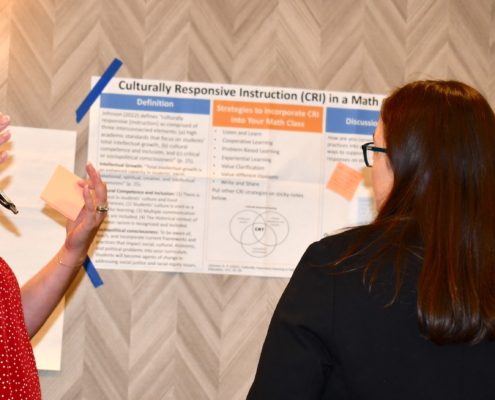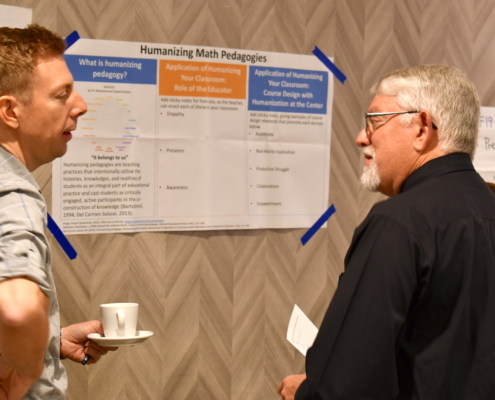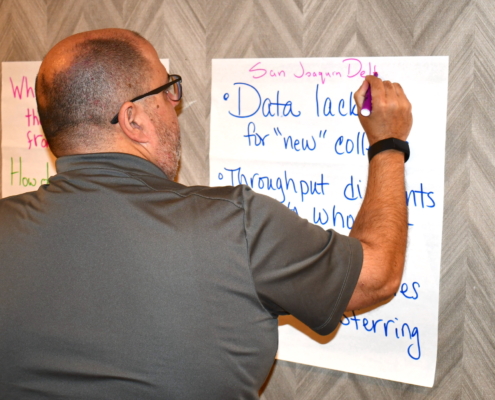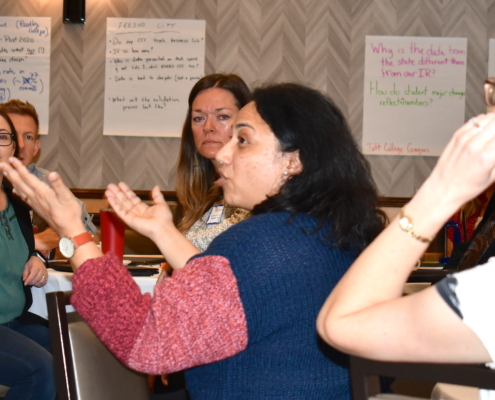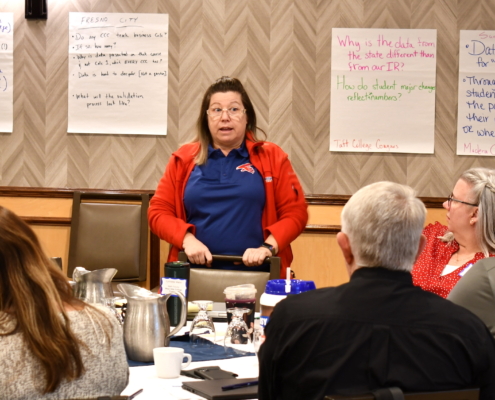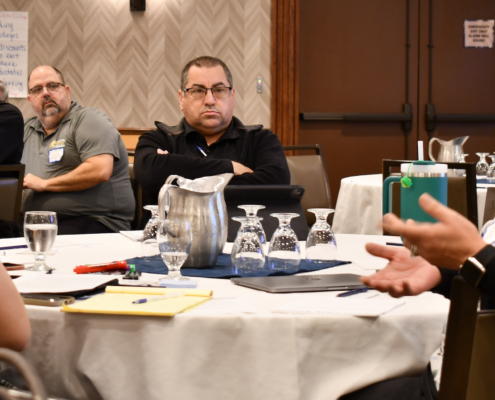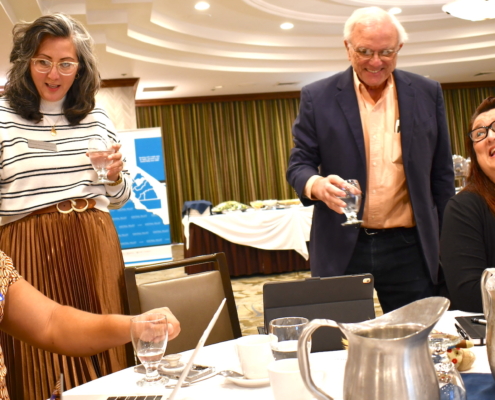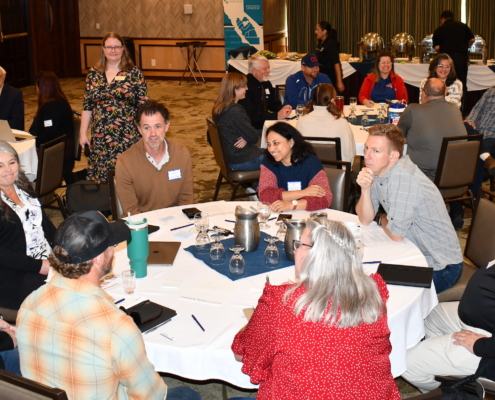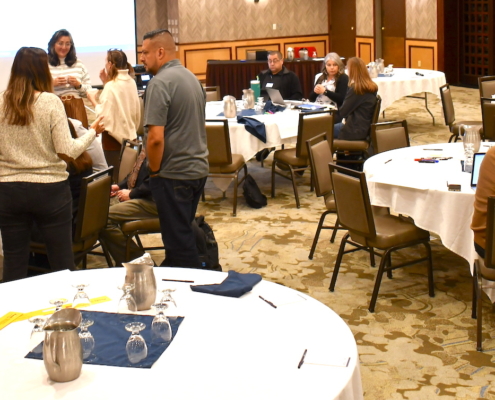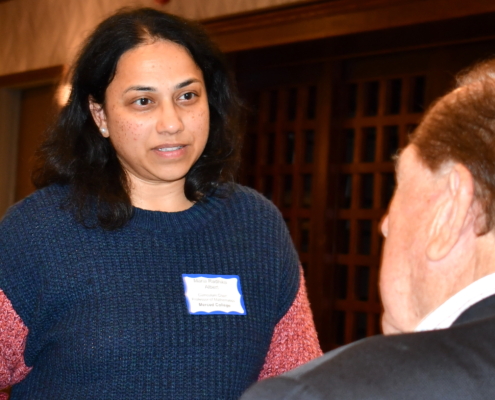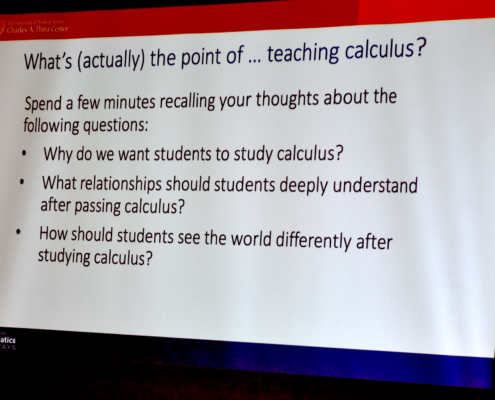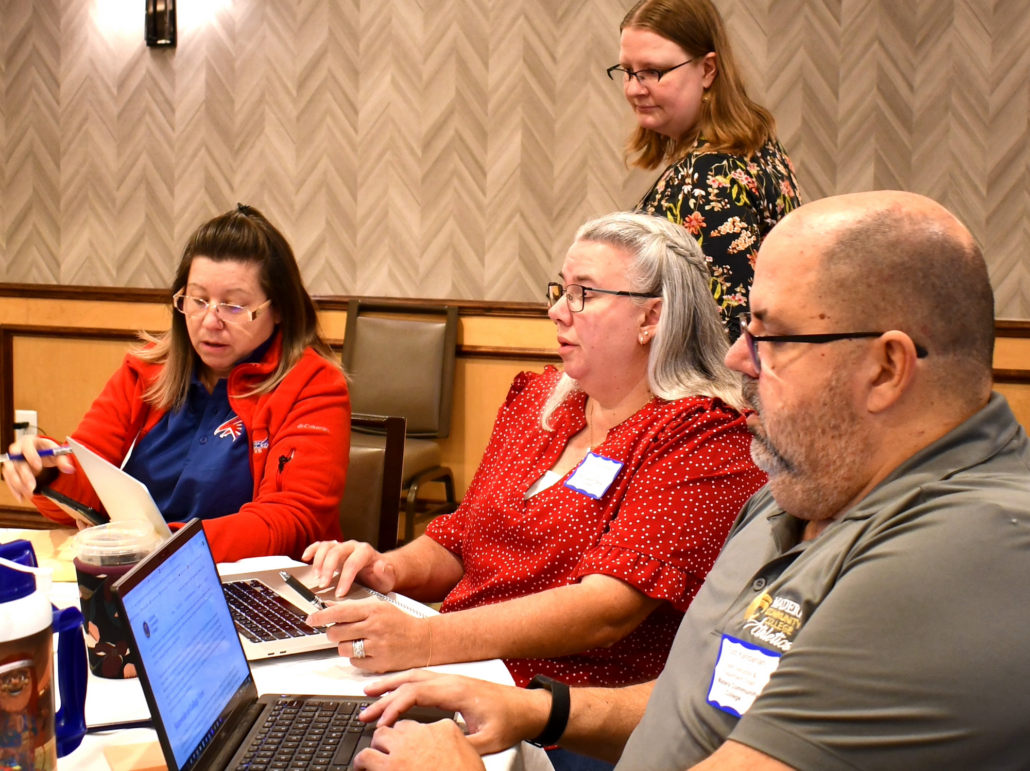
CVHEC Math Task Force — Math professionals representing the consortium’s community college members from throughout the Central Valley’s nine-county region convened in Fresno Oct. 13 to continue AB 1705 implementation discussions. (See photo gallery below).
‘The math education professionals in the CVHEC region are showing up for the task’
With an eye towards ensuring the success rates of their students enrolled in corequisites to gateway math courses, community college members of the Central Valley Higher Education Consortium Math Task Force kicked off a series of convenings in October to begin preparing for implementation of Assembly Bill 1705 in the 2024-25 academic year. (See photo gallery below).
CVHEC announced that follow up meetings are set for November and January to continue a year-long discussion of ideas and options with the task force members and other educators in an ongoing quest for equitable mathematics under AB705 and AB1705.
To accommodate faculty schedules, two one-hour virtual sessions have been set for Nov. 17: 10-11 a.m. and 1-2 p.m. A follow-up day-long session is set for Jan. 26 in-person in Fresno.
These sessions will continue discussions initiated Oct. 6 (virtual) and Oct. 13 (in person), when CVHEC convened more than 30 math educators, counselors and administrators to begin exploring their existing respective implementation data and follow-up measures.
Dr. John Spevak, CVHEC regional coordinator who oversees the consortium’s Math and English Task Forces, said the agenda for the two November Zoom meetings will cover the same topics so math professors can choose the meeting time that fits their schedule. But they are welcome to attend both he said.
“The purpose of the next meetings is to move the discussion along from the October sessions and to set the stage for our next in-person meeting in January,” said Spevak, a Merced College vice president-emeritus. “It’s a way to keep momentum going from those first very interactive meetings that featured a lot of productive discussion.”
Those inaugural sessions were facilitated by representatives of the Charles A. Dana Center at the University of Texas at Austin: Joan Zoellner, M.A., who is the lead for the Dana Center’s Launch Years Initiative; and Dr. Tammi Perez-Rice, Postsecondary Course Program specialist.
At the Oct. 6 virtual informational session, Dr. Erik Cooper, assistant vice chancellor of the California Community College Chancellor’s Office, Zoomed in to discuss the recent history of math education reform in California. He fielded questions about the requirements and expectations for community colleges under AB1705. (See recording).
A week later, the Dana reps came to Fresno to meet in person with the CVHEC Math Task Force — made up of representatives from CVHEC community colleges — and other math educators diving deeper into the AB1705 implementation discussion started in the first virtual session.
At that six-hour Oct. 13 gathering that included breakfast and lunch, participants explored their existing AB705 implementation data, including the success rates of students enrolled in corequisites to gateway math courses.
“They explored holistic student support strategies to further increase success rates in their existing corequisite courses such as early alerts, incorporating non-cognitive skill instructions, strategies to humanize math instruction and culturally responsive instruction strategies,” Zoellner said.
Participants also explored the concept of modernizing calculus and revisiting the core prerequisite concepts necessary for calculus success, with the possibility of implementing calculus corequisites in mind.
“Strategies for validating prerequisite courses and/or specific prerequisite skills were discussed, as well as ways to provide just-in-time support to allow more students to enter directly into calculus,” Zoellner explained.
Campus teams developed initial plans for their AB1705 implementation for the next year that will be pursued in the upcoming November and January sessions.
Dr. Perez-Rice, who travels nationwide to meet math faculty working to reform mathematics, was impressed with the Central Valley math professionals tackling the issue.
“Being my first time in the CVHEC region, I found the mathematics faculty, administrators and staff ready to continue the momentum set forth by AB705 to see AB1705 through,” she said. “They quickly dove into the data and rolled up their sleeves to do the hard work to ensure equitable mathematics is implemented.
“To say this work is complex would be an understatement; however, the excellent math education professionals in the CVHEC region are showing up for the task. Clearly, the math faculty in the CVHEC region are some of the best,” Dr. Perez-Rice said.
Spevak echoes that call to the Math Task Force for continued forward progress by responding to one of the two Zoom invites for the Nov. 17 virtual meetings that will again be facilitated by the Dana Center. He and the Dana Center will be sending discussion points for the participants to consider in advance.
“Among other things, I will briefly share what I learned in talking with Dean Tammi Marshall at Cuyamaca College, where currently a Calculus 1 course with a mandatory prerequisite is being taught to students who have not had pre-Calculus,” Spevak said.
Also participating in the October sessions were representatives of College Bridge whose historic Central Valley Math Bridge project with CVHEC was launched this year as an intersegmental collaboration designed to improve math outcomes for struggling 11th and 12th graders and streamline Math pathways into college for them.
Dr. Lynn Cevallos, College Bridge president and cofounder, said these math task force sessions provide an excellent opportunity for math practitioners to learn how the Math Bridge can provide valuable pathways to achieving AB1705 compliance.
Dr. Benjamín Durán, CVHEC executive director, expressed his gratitude to the Math Task Force and all involved for “their interest in this endeavor and ongoing dedication to student success in math.”
For more information: Angel Ramirez, CVHEC finance operations manager, centralvalleyhec@gmail.com.
(For media inquiries, contact Tom Uribes at cvheccommunications@mail.fresnostate.edu) or text 559.348.3278).
BACKGROUND
Passed in 2022 for implementation July 1, 2024, AB 1705 expands the provisions established in AB 705 (2017) by explicitly requiring community colleges not only to place students directly into transfer-level English and math courses but also to ensure that students actually enroll in those courses. The recent legislation also establishes that for students who need or desire extra academic support, community colleges shall provide access to such support. The new law clarifies that a community college can require students to enroll in additional concurrent support if it is determined that the support will increase the student’s likelihood of passing transfer-level English or math.
See:
Recording of “AB1705 in the Central Valley” webinar with Dr. Erik Cooper 10.6.23
CVHEC Website Feature: Math Task Force Page
Central Valley Mathematics Pathway
The CVHEC Way to Math Success — Implementing AB1705 (December 2023)
Math Task Force begins discussion of AB1705 implementation – Nov. 17 next
(November 2023)
CVHEC Math Task Force meets in-person Oct. 13 for AB 1705 follow-up (October 2023)
NEWS RELEASE – CVHEC Math Task Force: Impactful legislation (AB 1705) Convenings Oct. 6 & 13 (September 2023)
CVHEC Partners With College Bridge in Grant Supporting DE Courses from Six Rural Community Colleges at 21 Service Area High Schools (January 2023)
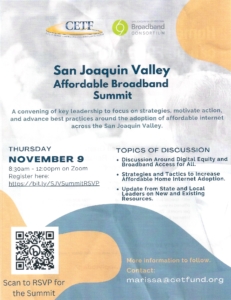 The California Emerging Technology Fund (CETF) is hosting the virtual summit with the deadline to register set for Nov. 7 at: https://bit.ly/SJVSummitRSVP.
The California Emerging Technology Fund (CETF) is hosting the virtual summit with the deadline to register set for Nov. 7 at: https://bit.ly/SJVSummitRSVP.
